
Helen Thompson is the multimedia editor at Science News. She makes videos, creates data visuals, helps manage the website, wrangles cats and occasionally writes about things like dandelion flight and whale evolution. She has undergraduate degrees in biology and English from Trinity University in San Antonio, Texas, a master’s degree in science writing from Johns Hopkins University in Baltimore, Maryland, and strong opinions about tacos. Before Science News, she wrote for Smithsonian, NPR.org, National Geographic, Nature and others.

Trustworthy journalism comes at a price.
Scientists and journalists share a core belief in questioning, observing and verifying to reach the truth. Science News reports on crucial research and discovery across science disciplines. We need your financial support to make it happen – every contribution makes a difference.
All Stories by Helen Thompson
-
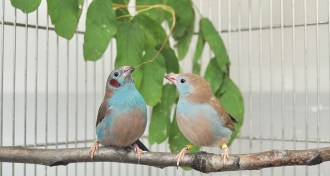 Animals
AnimalsAdorable birds tap dance their way into the heart of a mate
Blue-capped cordon-bleu songbirds not only sing, but also tap dance to woo mates, study reveals.
-
 Anthropology
AnthropologySynchronized dancing boosts pain tolerance
Dancing in sync to high energy routines increase pain tolerance and helps people bond as a group, a study suggests.
-
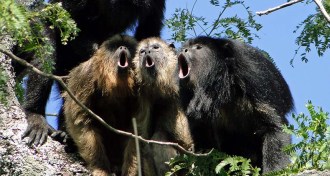 Animals
AnimalsHowler monkeys sacrifice sperm for deeper roars
In howler monkeys, expanded vocal tracts make for deeper-voiced males with smaller testes, researchers find.
-
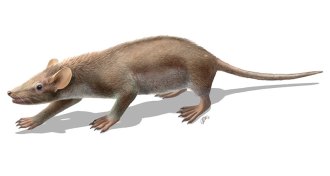 Paleontology
PaleontologyFurry, spiky mammal scampered among dinosaurs
Early Cretaceous fur ball with spikes discovered in Spain.
-
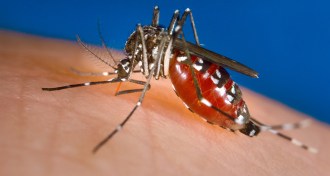 Genetics
GeneticsAsian tiger mosquito genome sequenced
Researchers have sequenced the genome of the Asian tiger mosquito, a stealthy invasive species and carrier of tropical diseases.
-
 Climate
ClimateClimate change could shift New England’s fall foliage
Climate change could make for earlier or later fall color, depending on where you live in New England.
-
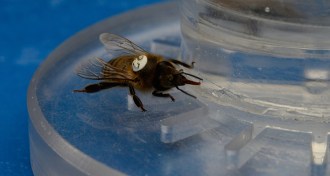 Animals
AnimalsBees get hooked on flowers’ caffeine buzz
Flowers drug honey bees with caffeinated nectar to trick them into returning, causing the bees to shift their foraging and dancing behaviors.
-
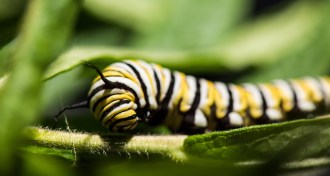 Animals
AnimalsRoot fungi make or break monarchs’ chances against parasite
Fungi that live amid the roots of milkweed plants change the chemicals produced in the plant’s leaves, which can either aid or hinder a monarch butterfly’s ability to fight off parasites.
-
 Animals
AnimalsThis may be the world’s tiniest snail
Tiny snail unearthed in China could be the world's smallest, researchers report.
-
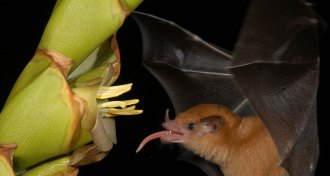 Animals
AnimalsSome bats chug nectar with conveyor belt tongues
Grooved bat tongues work like escalators or conveyor belts, transporting nectar from tip to mouth.
-
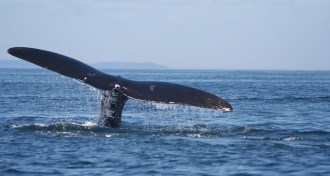 Animals
AnimalsDon’t judge a whale’s gut microbiome by diet alone
Evolutionary history and diet may both determine the microbes that live in a baleen whale's stomach, researchers report.
-
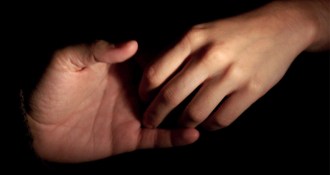 Psychology
PsychologyPeople find the skin of others’ softer than their own
Humans perceive other peoples’ skin as softer and smoother than their own because touch is important in social bonding, researchers suggest.